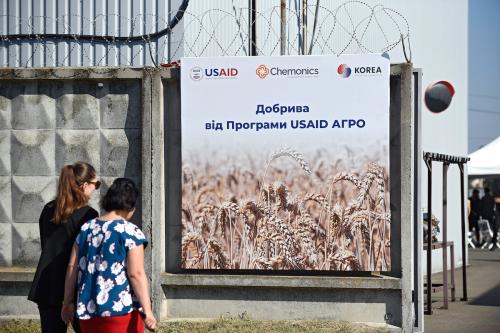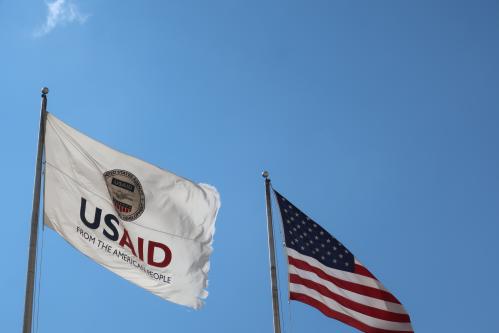The 3-month-old violence in South Sudan between the supporters of President Salva Kiir Mayardit, who is from the Dinka tribe, and the followers of his former Vice President Riek Machar, a Nuer, has opened deep wounds in the nascent republic. The conflict has claimed thousands of lives and displaced nearly a million people in shocking episodes of violence reminiscent of the 1990s when Mr. Machar turned against his compatriots in the Sudan People’s Liberation Movement/Army (SPLM/A) during the new country’s fight for independence. The violence then, as it is now, has resulted in perpetration of heinous crimes against humanity, particularly in the Greater Upper Nile region, where the town of Bor has, once again, been the scene of another massacre. Peace remains elusive, as the latest round of negotiations under IGAD’s mediation was postponed after the government boycotted the talks this month.
Despite the current tragedy, the South Sudanese have been through equally painful experiences in the past and were able to forgive one another. And while they can exercise such forgiveness again, there is no guarantee that it will end the cycle of violence. The people need a genuine reconciliation process that goes beyond “forgiveness” in order for them to move forward.
A credible reconciliation process cannot occur while the conflict rages on in some parts of the country. While the institutional deficiencies to mediate political pressures exerted by a power struggle lie at the root of the crisis, the fighting has generally taken ethnic lines. The supporters of Mr. Machar claim that Mr. Kiir has lost legitimacy following the massacre of Nuer civilians by government forces in the nation’s capital and are fighting to remove him and install Mr. Machar to power. On the other hand, Mr. Kiir’s government has accused Mr. Machar of treason and wants him to face charges. Reconciling these narratives has proved difficult for the East African mediators, particularly in finding a meaningful deal to end the violence.
There are only three possible scenarios to end the conflict: a military victory by the government over the rebels, a power sharing deal involving Mr. Kiir and Mr. Machar, and an interim government involving neither. A national reconciliation process would look fundamentally different in each of these three scenarios—but for it to be credible it has to be led by a government seen as legitimate by the people, and it has to provide justice for the victims of the ongoing violence.
Under the scenario of a military victory by the government, it is unlikely that the majority of rebel sympathizers would change their views regarding Mr. Kiir’s legitimacy. His government would lack legitimacy in their eyes and so would any reconciliation process under him. These challenges could hinder a genuine reconciliation process, not to mention the enormous loss of lives and issues of access to justice by rebels’ sympathizers under this scenario. Besides, the government can only manage a military victory with the military support of regional allies.
In the event that Mr. Kiir and Mr. Machar reach a deal, they would likely form a coalition government, where Mr. Kiir could remain as president and Mr. Machar could become the prime minister or a first vice president. Such an arrangement would be similar to the one that existed between them before July 2013, but, obviously, the duo was unable to conduct a reconciliation process or build credible institutions to mediate their competing ambitions after nearly eight years of working together. The two men were deeply suspicious of one another, and after the events of last few months, it is difficult to see how they could bridge this challenge. Moreover, Mr. Machar is likely to return to Juba with tens of thousands of troops loyal to him for his protection, making the environment not conducive for a genuine reconciliation.
Could an interim government that excludes both Mr. Kiir and Mr. Machar be the answer? They could each back a preferred candidate as the recent experience in Madagascar has shown. There is also a risk that the country could fall apart in the absence of Mr. Kiir, and local strongmen could carve out fiefdoms, ending the integrity of South Sudan as a state. It could also set up a dangerous precedent where an elected president is asked to resign in the wake of an armed rebellion in order for peace to return. However, with the commitment of the region and international community, an interim government could give South Sudan a chance of starting over and embarking on a reconciliation process.
In any scenario, a credible reconciliation process would be challenging for the 2-year-old country. But it remains farthest from reconciliation as long as the violence continues. The IGAD countries sponsoring the talks do not have a common strategy for handling the South Sudan’s crisis. Uganda has sent in troops to fight alongside Mr. Kiir’s forces—a move that has drawn criticism among other member states. The two warring sides do not seem in hurry to end the violence despite the ongoing suffering of their people. And while the options for ending the conflict are messy, they are nonetheless clear. For any option to succeed, it would require a significant and united commitment from the neighbors and friends of South Sudan.
Note: This blog reflects the views of the author only and does not reflect the views of the Africa Growth Initiative.
Peter Biar Ajak, founder and director of the Center for Strategic Analysis and Research in Juba and a member of the National Security Policy Drafting Committee in the Office of the President of South Sudan since 2011, is a Ph.D. candidate at Trinity College, University of Cambridge.



Commentary
Reconciliation in South Sudan: Three Likely Scenarios
March 25, 2014